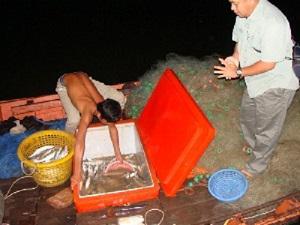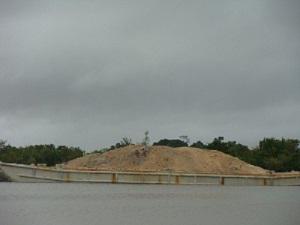Dok Doma
Other projects
8 Nov 2012
Review of Mangrove Biodiversity Conservation and Management in Sre Ambel Bay, Cambodia toward Establishment of Code of Conduct for Sustainable Conservation
The aims of the project are to:
-To explore a possible solutions for stakeholder conflicts in the access of marine fisheries resources in the area
- Provide capacity building to grassroots following the adaptation of a proposed mechanism alternative for the conflict solutions.

Sre Ambel is the most productive coastal area for marine fisheries in Cambodia. There are several conflicts in the access of marine resources in the area. No one can explore the effective instrumental mechanism to solve the conflicts and bring with instrument alternative for the whole lagoon management. What is often missing in these nation-wide efforts, however, is input from resource users and other stakeholders. Full stakeholder participation in formulating and implementing decisions about environmental resources is one of the key principles for promoting sustainable governance of the oceans and coastal areas. This is particularly true in the case of multifaceted conflicts over resource use, which requires a participatory resolution process (Hanna and Smith, 1993). User participation in decision-making helps to increase the transparency (and legitimacy) of the process and subsequently, rule compliance.

McCay and Jentoft (1996), as well as Berkes (2002), identified some promising institutional reforms for cross-scale linkages in natural resource management to take stakeholder concerns and user knowledge into account through a participatory resource management process. They included: co-management linking communities and government; multi-stakeholder bodies; development, empowerment, and co-management arrangements; institutions for linking local users with regional agencies; research and management approaches to enable cross-scale linkages; and ‘citizen science’ or ‘people’s science movements.’
There is no general model that can be universally applied as the best solution for conflict of marine fisheries resources. The most appropriate approach or combination of approaches for each case will depend on the political and cultural history of the area as well as on its geographical and ecological characteristics. Therefore, this project will have two stages; one is to explore the possible and most appropriate approach of conflict solutions across policy levels, and the second stage will build up the capacity all stakeholders in the marine resources use.